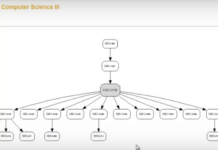Klein-Collins, R. (2010) Fueling the Race to Post-Secondary Success Chicago IL: The Council for Adult and Experiential Learning
One of the features of old age is that things keep recycling. I commented in an earlier post about Intelligent Tutoring Systems coming back from the dead (where they should remain) but the latest ‘born again’ phenomenon, prior learning assessment, is much more welcome. (To be honest it has really never gone away, but over the last 10 years it has certainly not been given a lot of attention).
Prior Learning Assessment (PLA) is the process by which many colleges evaluate for academic credit the college-level knowledge and skills an individual has gained outside of the classroom (or from non-college instructional programs), including employment, military training/service, travel, hobbies, civic activities and volunteer service. PLA recognizes and legitimizes the often significant learning in which adults have engaged in many parts of their lives.
This new study is a report of how well students who were admitted to 46 US and two Canadian post-secondary educational institutions (Athabasca University and the University of the Fraser Valley, BC), as a result of prior learning assessment, have done in terms of degree or program completion. It seems at first glance that they did pretty well. From the summary of the results:
The data from 62,475 students at the 48 postsecondary institutions in our study show that PLA students had better academic outcomes, particularly in terms of graduation rates and persistence, than other adult students. Many PLA students also shortened the time required to earn a degree, depending on the number of PLA credits earned.
What I found difficult to comprehend initially was that the study found only 21 per cent of students who were not admitted through PLA gained a degree within seven years (compared to 51 per cent with PLA assessment). Does this mean that students who are admitted on the basis of high school grades rarely pass within 7 years? Well, apparently not. The survey included only adult students, i.e. students 25 years of age or older. This seems odd to me. Should not the valid comparison be between all students with PLA, and all students without PLA, irrespective of age?
This is a really important methodological question. Students with PLA by definition are quite rightly given credit for their prior experience and therefore need to take fewer courses than those who have not received credit exemptions. It is not surprising then that among adults those with PLA did much better – the other poor devils are having to take a full program as well as working.
The more important question for me is: how well does PLA do compared with traditional methods of assessment for entry to post-secondary education? Unfortunately this study does not ask or answer that question.
I ask it because I believe that all the evidence that exists, and there is not much, suggests that GPAs are a very poor predictor of success in post-secondary education – or rather once minimal levels of literacy and numeracy are reached (i.e. passes), there is little predictive reliability in GPAs: those with nothing but As in high school do not necessarily do better (in the same post-secondary program) than those with Cs at high school. This became evident at the British Open University which accepts anyone, irrespective of their prior qualifications. 40 per cent of those who went on to graduate from their first intake in 1971 would not have been admitted to a conventional university in the UK because they did not have the necessary high school grades (McIntosh and Woodley, 1980). (The UK Open University usually ranks in the top 10 British universities on both teaching and research).
Of course, students with As often do very well, because they usually go to highly selective universities that provide status and networks that are invaluable after they graduate. My point is that often students with Cs in high school but other characteristics – such as strong motivation or a particular interest that can be fostered in a selective university – would often do as well or better than high flying high school students, because there are many more factors at play in academic success than a particular grade at a particular time in one’s life. However, it seems a heresy in higher education to even suggest something like this, because it would wreck the whole selective education system.
Which comes back to prior learning assessment. PLA is great and enables many adults to succeed more quickly and even to get admission where otherwise this would have been difficult. However, the problem is not prior learning assessment or GPAs, but the whole idea of selection on the basis of grades at 17 or 18.
I think a lottery would be just as reliable as GPAs in selecting excellent students for Harvard or Oxford – and more democratic. If you want to prove me wrong, great – let’s have some reliable research that shows the correlation between high school grades and success in a specific post-secondary education program. If someone can provide that, I will eat humble pie.
For more on this report, see also:
Lederman, D. (2010) The prior learning edge Inside Higher Education, March 1
Reference
McIntosh, N. and Woodley, A. (1980) The Door Stood Open Lewes UK: Falmer Press









 Dr. Tony Bates is the author of eleven books in the field of online learning and distance education. He has provided consulting services specializing in training in the planning and management of online learning and distance education, working with over 40 organizations in 25 countries. Tony is a Research Associate with Contact North | Contact Nord, Ontario’s Distance Education & Training Network.
Dr. Tony Bates is the author of eleven books in the field of online learning and distance education. He has provided consulting services specializing in training in the planning and management of online learning and distance education, working with over 40 organizations in 25 countries. Tony is a Research Associate with Contact North | Contact Nord, Ontario’s Distance Education & Training Network.

